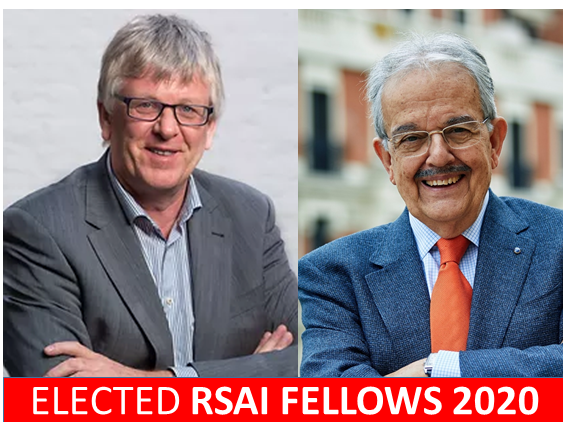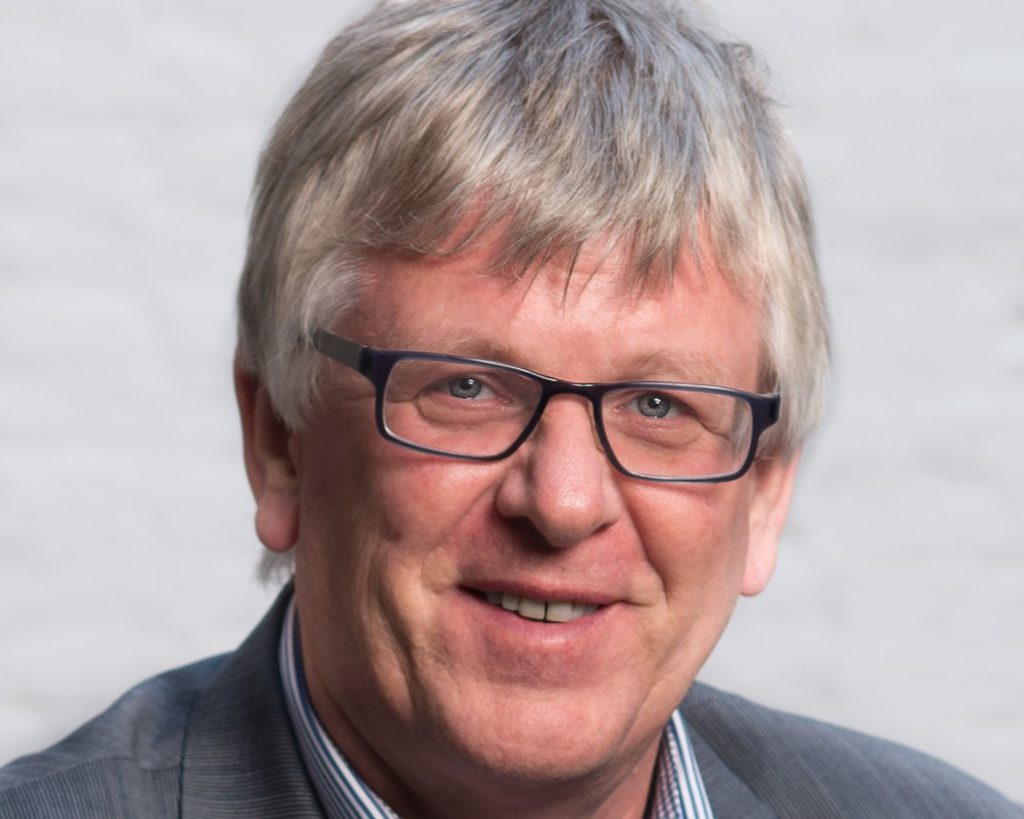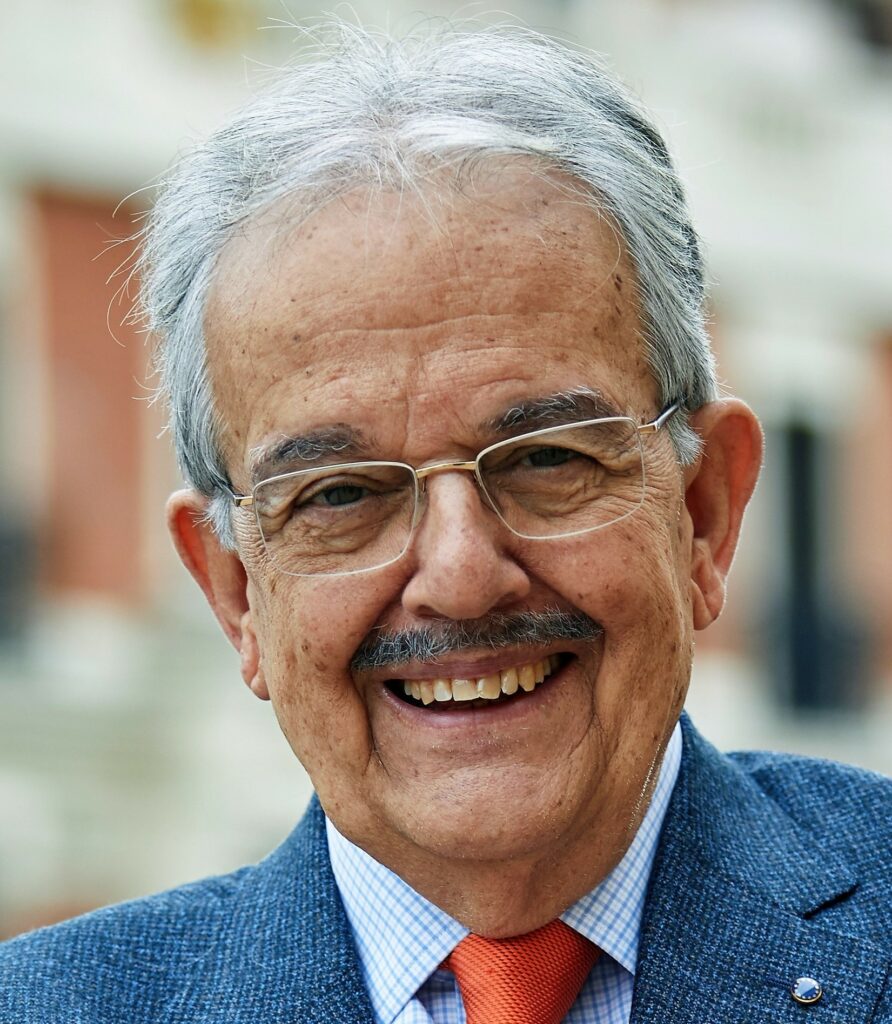
RSAI fellows are distinguished scholars with a proven and recognized research record in the field of regional science. On September 2, RSAI announced the election of RSAI fellows 2020: Prof. Jouke van Dijk, University of Groningen, The Netherlands, and Prof. Juan R. Cuadrado-Roura, University of Alcalà, Spain.
ERSA Community is very proud of this prestigious recognition of Juan and Jouke as RSAI fellows, their contribution to the Regional Science is remarkable in many ways. We invite you to read below and learn more about this year’s elected fellows.
How and when did you know you wanted to make a career in research? What made you choose the regional science field?
Jouke van Dijk: “As an economics student at the University of Groningen I discovered that regional and labour economics were much more interesting than e.g. macro and monetary economics and I was also interested in multidisciplinary issues beyond economics. Therefore, I choose Regional Science as Masterstudy, a new master initiated by Jan Oosterhaven and Cees Bartels with besides economics also courses in economic geography, planning and law. … “
Juan R. Cuadrado-Roura: ” … I was always very inspired by social and territorial inequalities in the distribution of income, poverty, unemployment, etc. And I always thought that, in addition to taking active political positions, as I did, it was very important to have a solvent theoretical base, training in quantitative analysis and to understand the alternatives of economic and social policy.
How did you begin taking part in Regional Science and in ERSA activities?
Jouke van Dijk: “During my first year as PhD I participated in the ERSA Conference 1982 which took place in my hometown Groningen. I was immediately addicted because since then I attended almost all ERSA conferences and missed only three. My regional science colleagues in Groningen introduced me in the ERSA network, but also in the worldwide RSAI network. In 1982 I took part in a migration conference organized by Andy Isserman in Washington and there I met Walter Isard for the first time, which was very inspiring! ….”
Juan R. Cuadrado-Roura: “My dissertation had already dealt with the analysis of agglomeration and economic concentration processes, in relation to the localization of productive activities and the different development speeds and their causes. …. As a Full Professor at the University of Malaga, I promoted the creation of the first regional magazine: Estudios Regionales, which is still alive today. I was also among the founders of the Spanish Regional Science Association (AECR in Spanish) …. From the AECR, of which I was its second president, I dedicated a lot of effort to open the Spanish section to the international arena, and I believe that we managed to increase the number of Spanish researchers at ERSA Congresses enormously. I had the satisfaction of being able to organize one of these European congresses in Barcelona early on (1980) and, lately, a RSAI World Congress held in Mallorca (1992), as well as other international meetings and workshops.”
What were your first thoughts when you learned about the prestigious recognition as RSA fellow?
Jouke van Dijk: “… I spend my whole working life and academic career in the field of Regional Science and also served in various organizational positions at the Dutch section, ERSA and RSAI and as Editor-in-Chief of Papers in Regional Science and then it is a great honor that this is recognized by the regional science community by the appointment as RSAI fellow”
Juan R. Cuadrado-Roura: ” … Of course, receiving the news was a great gratification. … I sincerely appreciate this distinction, and this will motivate me to continue working with even more enthusiasm in favor of Regional Science and in the development of the RSAI and its sections. “
Your contributions to regional science are significant and numerous. If you should cite one paper, a book or a contribution you are very proud of, which you choose and why?
Jouke van Dijk: “….. I am still very proud that with the help of my co-authors Jan Oosterhaven and Henk Folmer I was able to publish the chapters of my dissertation on Migration and Labour Markets at the beginning of my career as articles in the prestigious journals The Review of Economics and Statistics, Regional Studies, London Papers in Regional Science and Papers of the Regional Science Association (now Papers in Regional Science). …. I am also very proud of my publications on firm relocation in the field of Firm Demography to which I was introduced and published together with Piet Pellenbarg my colleague in Economic Geography.”
Juan R. Cuadrado-Roura: “…. One of my greatest fulfilments was launching (in 2002) and consolidating the ‘Journal of Regional Research / Investigaciones Regionales’, with the support of the AECR, indexed and which has served to develop high caliber regional studies. Among my publications, I am particularly pleased with two of the four books Springer has published for me: Service Industries and Regions and Regional Problems and Policies in Latin America (in collaboration with P. Aroca, as editors and co-authors). … “
You have a long history with the RSAI network with key responsibilities like the ERSA President… Can you say a few words about your rich contribution to the research network and the future inside that network?
Jouke van Dijk: “In the 90s I became an active member of the Board of the Dutch section and secretary of the LOC of the ERSA conference 1994 in Groningen. After that I served as Executive Secretary of ERSA and European Organizing Committee from 1996–2001 working with the Presidents Borje Johanson and Juan Cuadrado Roura. Later on, I became involved in the organization of ERSA Summer Schools in Groningen in 2001, 2006 and if corona permits in 2021 and fulfilled several other functions in the EOC and RSAI Council. But the highlight of my career was serving as Editor-in-Chief of Papers in Regional Science from 2005-2012 and of course as ERSA President from 2014-2018. …”
Juan R. Cuadrado-Roura: “I think my time as President of ERSA was quite fruitful. The number of congress attendees grew enormously, several points of the statutes were clarified, we opened ourselves to collaborate more and more with the French Language Association and we also collaborated then and later in the birth and development of various European and Latin American sections. …..”
What is your vision of the network regarding its key roles for scientist, society?
Jouke van Dijk: “The corona crisis clearly shows how desperately we need networks to meet each other in persons within sections, within Europe and worldwide. Of course, now we learn a lot about how to interact in a virtual way …. But it cannot substitute for physical personal contacts during a dinner and drinking a beer which lead to lifelong friendships and productive cooperation in writing joint articles and research proposals. These networks are also important for the interaction between scientists and policymakers at the regional and national level, but also with DG REGIO and the OECD.”
Juan R. Cuadrado-Roura: “Research – with very few exceptions – needs to be tested and verified with what others do or think. And in an interdisciplinary science, as in our case, interrelation, and discussion with other researchers from other fields is essential. As it is to produce works that start from real problems of society, that try to explain them and offer solutions and improvements.”
What guidance might you give to a young researcher willing to build his/her career in regional science?
Jouke van Dijk: “Exchange of ideas is important for science and researchers and this is especially true for young researchers. They need to meet each other frequently to build their own network, but also need interactions with senior scientists and policymakers. Therefore, my advice to young researchers is to go to Summer Schools, master classes, conferences, research visits at other universities and policy institutes as much as possible.
Juan R. Cuadrado-Roura: “My main recommendation would be to be innovative, that they do not simply imitate what other researchers have published, in other countries or in other social contexts. Another key point is to get closer to reality. ….”
Learn more about this year’s RSAI fellows

Jouke van Dijk
Read the full interview
Curriculum

Juan R. Cuadrado-Roura
Read the full interview
Curriculum
